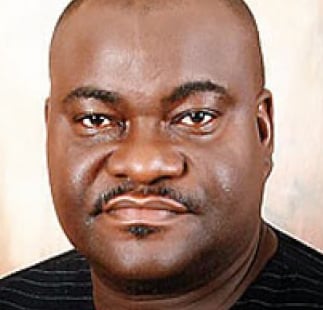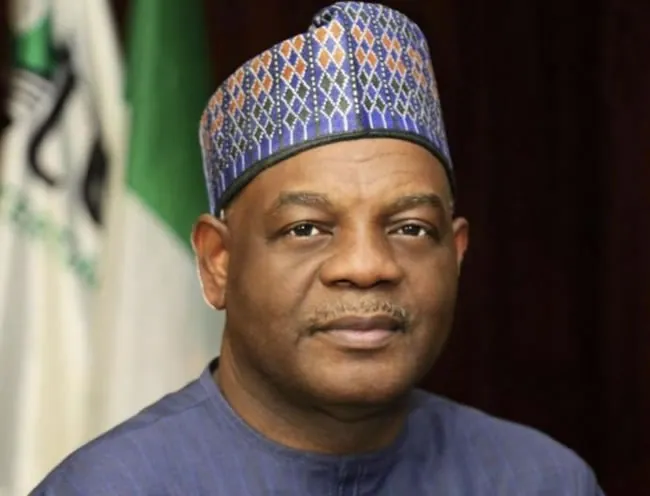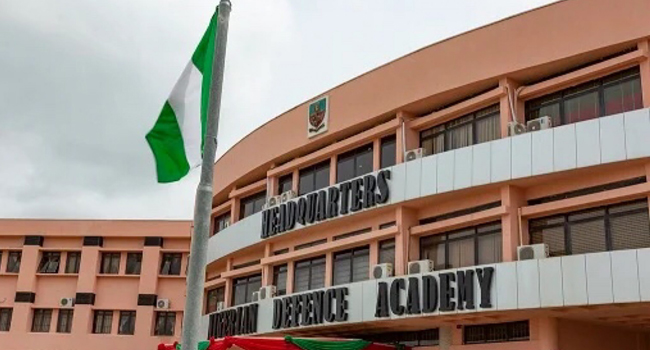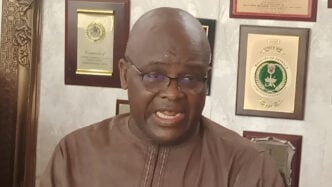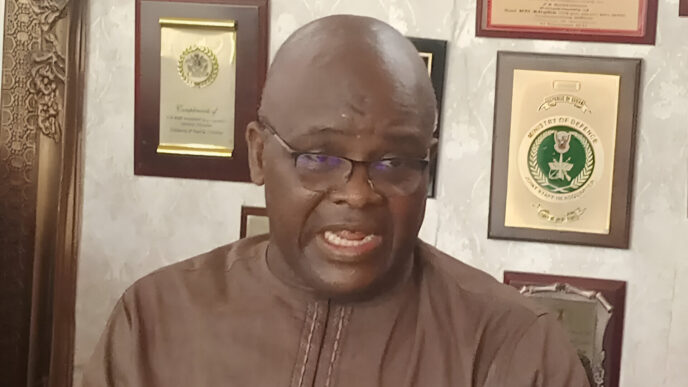Sonny Togo Echono, the Executive Secretary of the Tertiary Education Trust Fund, (TETFUND), would most probably have earned the sobriquet of “action administrator,” if Nigeria were in a military dispensation. Successive military regimes over several years and decades, profited Nigeria’s governance lexicon with sundry additions and infusions. “Action Governor” was one such sobriquet which gained and sustained prominence in public conversations in times past. It referred to military superintendents who were proactive, maybe also heavy-handed in their approach to public service. For their roles in advancing infrastructural development in their states of jurisdiction, Mobolaji Johnson, David Bamigboye, Robert Adebayo, Osaigbovo Ogbemudia, all Army Colonels who administered Lagos, Kwara, Western and Midwestern states, were garlanded as action Governors. Mohammed Buba Marwa, incumbent Chairman of the National Drug Law Enforcement Agency, (NDLEA), a Brigadier-General who led Lagos State between 1996 to 1999, was similarly so decorated.
Marwa was upfront in road rehabilitation, revamp of health institutions and crime control. He initiated a joint military and police task force christened Operation Sweep as a crime containment strategy, which success was adopted by many other states. All of these were consummated by his honorific as an “action administrator.” Marwa’s precedence was emulated by several other states, notably Oyo under Colonel Ahmed Usman and his Kogi State counterpart, Bzigu Lassa Afakirya, who launched Operation Gbale, (gba’le being the Yoruba expression for sweeping), and Operation Hot Chase, respectively. Raji Rasaki, a former military administrator of Lagos State also earned the nickname of akson governor, from his Yoruba-accented pronunciation of the word “action.” He is remembered for the massive demolition of illegal structures which significantly cleared Lagos of shanties and slums. This would subsequently impact the real estate market in the state.
Since his appointment to his present brief a little over three years ago, Echono has demonstrated the ability to talk tough and follow up with similar resoluteness. At every opportunity, Echono has striven to harp on the fact that a new Sheriff is at work in TETFUND. He began his reformation agenda with sequenced encounters with entrenched cabals in the organisation who appropriated to themselves the rights to determine contract awards. To rejig our memories, Echono was one of the pioneer civil servants to be taken through the mills of a new public procurement and due process regime in the early years of the present democratic era. He has “preached the gospel” across his various “bus stops” in public service, which spanned several ministries before his present schedule. He has never been deterred, irrespective of the reactions of the establishment.
His insistence on reorientation and reforms earned him spontaneous adversaries. “Victims” of Echono’s new preachment responded by waging a ferocious media campaign against him, calculated to spin the narrative. The war was escalated to the national legislature which received several petitions alleging humongous fiscal infractions and malfeasance under Echono’s watch. Anti-corruption agencies, notably the Independent Corrupt Practices and Related Offences Commission, (ICPC) and the Economic and Financial Crimes Commission, (EFCC) took interest, expectedly, in the untoward information filtering in from TETFUND. To the consternation of Echono’s traducers, he received clean bills of health and glowing testimonials each and every time TETFUND’s systems, and his personal profile were put through the grindstone of serial integrity tests. Such has been Echono’s experience as he moved to stop the preexisting bazaar in TETFUND under his watch.
Advertisement
For academics who have benefitted from the generosity of government by way of scholarships and grants to study in foreign countries but have opted to “defraud” the state, Echono has since wielded the big stick. Certain lecturers and instructors across institutions have been privileged beneficiaries of government funding for further studies abroad. They are usually expected to return to Nigeria to give back to the system which availed them such benevolence, by way of continuing service to their primary employers. Conversely, in many instances, some scholars repay government their benefactor, with a bad coin. They abscond or “defect” as it were. In the face of the current economic situation in the country impacted by inflation and currency devaluation, Echono has since declared that government will no longer play the Santa Claus.
Rather, government will henceforth support in-country capacity building for its intellectuals and scholars. Military officers from many foreign countries for instance receive primary and advanced training in Nigerian military institutions. Almost every graduating set from the Nigerian Defence Academy, (NDA), or the Nigerian Defence College, (NDC), have sprinklings of foreign students. Why wouldn’t indigenous scholars also receive advanced training in retooled and recalibrated home-based institutions? Indeed, Nigerian academics populate the faculties of several universities and training institutions across the world. These include choice destinations like the United States of America, the United Kingdom, Canada, the United Arab Emirates and South Africa. Nigeria can look inwards such that experienced Nigerian scholars and technocrats at home, impact their colleagues desiring retraining and advanced exposure, within the bounds of tolerable financial exertion.
Echono has equally conducted forensic interrogations into the size of tertiary institutions, relative to funding accruable to them. In a milieu where the population of some citadels nestle in upper five figures, Echono finds it curious that the numbers of a few colleges are way below a miserable 100 students! An alarmed Echono once highlighted the specific case of a polytechnic which had just 30 enrollees, which had operated for four years and had continued to receive public funding. For him, such an example is anathema to the intentions of government as channelled through TETFUND. Accountability in the deployment of funding he noted is also paramount. Should unutilised funds be discovered in the accounts of benefitting institutions, such funds will be recalled and reallocated to schools with better performance indices. Equally strident is Echono’s regular admonition against abandoned projects in the nation’s public tertiary institutions. Such unsightly stumps in the landscapes of institutions, such monuments to waste will no longer be tolerated under his watch.
Advertisement
More recently, Echono warned institutions covered by TETFUND against abuse and misuse of intervention funds. At a two-day strategic workshop for Directors of Physical Planning, Academic Planning and ICT which commenced on Monday July 7, 2025 in Abuja, Echono warned that improper utilisation of resources allocated to errant institutions will culminate in the delistment of defaulting institutions. He restated government’s commitment to enabling the nation’s tertiary education system via addressing procedural gaps and ensuring that institutions fully understand the agency’s intervention guidelines. Underperformance and mismanagement, the TETFUND head noted will not be condoned. Echono reiterated that “institutions that fail to access, utilise or retire funds in accordance with TETFUND guidelines, or those that underperform in key academic or operational benchmarks, may be delisted.”
In a public service otherwise construed as dour, uninspiring and tepid, Echono has raised the bar with his well thought interventions. His approach to administration has been characterised by regular engagements and interfaces with key operators of the tertiary education mills. While Vice Chancellors, Rectors, Provosts at the helm in universities, polytechnics and colleges of education were hitherto sole regular guests at meetings with the leadership of TETFUND, the Echono milieu has expanded the scope of engagements. Other key stakeholders in the leadership crust of tertiary institutions, notably heads of administrative, financial and developmental departments, have equally earned the buy-in of TETFUND under Echono’s leadership. The conference hall within the Abuja headquarters complex of the organisation is ever busy with activity. All of these are geared towards a better performing tertiary education system to accord the country with the quality manpower necessary to drive growth and development.
For a dye-in-the-wool public servant who cut his teeth at the very core of the bureaucracy during which he grossed a glowing three and half decades before his current portfolio, Echono’s transformation will constitute the subject of future investigations. He joined the federal civil service in 1987 and retired early 2022. During his years in service, he traversed a string of ministries serving in various capacities and offices. The rule book of the civil service we are told is that “civil servants can be seen but their voices are not to be heard.” Echono evolved from that very same system. His present job description, however, has brought out the more vocal, more forthcoming persona in him, in continuing service to the nation.
Olusunle, PhD, FANA, Fellow of the Association of Nigerian Authors, (FANA), is an Adjunct Professor of Creative Writing at the University of Abuja.
Advertisement
Views expressed by contributors are strictly personal and not of TheCable.
